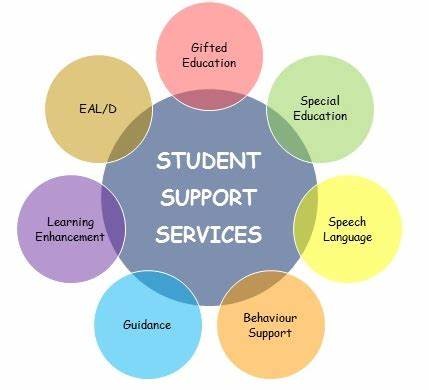When students embark on their journey at a U.S. university, they not only gain access to world-class education but also to a range of support services designed to enhance their academic success, personal well-being, and overall college experience. This article explores the comprehensive student support services offered by U.S. universities, highlighting their importance, benefits, and frequently asked questions to help students navigate their university life effectively.
Academic Advising and Counseling
One of the cornerstone services provided by U.S. universities is academic advising. Academic advisors help students navigate their academic journey by providing guidance on course selection, major/minor requirements, and academic planning. They assist students in setting academic goals, exploring career paths, and addressing academic challenges. Counseling services also play a crucial role in supporting students’ mental health and well-being, offering confidential counseling sessions, crisis intervention, and workshops on stress management and resilience.
Career Services and Professional Development
U.S. universities prioritize career readiness through comprehensive career services. Career centers offer resources such as resume building, interview preparation, job search strategies, and networking opportunities with employers and alumni. They organize career fairs, employer panels, and internship programs to connect students with potential employers and industry professionals. Professional development workshops and seminars enhance students’ skills in leadership, communication, and workplace etiquette, preparing them for successful careers post-graduation.
Diversity and Inclusion Initiatives
Many U.S. universities are committed to fostering a diverse and inclusive campus environment. Diversity offices and multicultural centers promote cultural awareness, equity, and inclusion through programming, workshops, and cultural celebrations. They provide support services for underrepresented student populations, including LGBTQ+ students, students of color, first-generation students, and international students. These initiatives aim to create a welcoming community where all students feel valued, respected, and supported in their academic and personal pursuits.
Health and Wellness Resources
Student health services at U.S. universities offer comprehensive healthcare, including primary care, mental health services, wellness programs, and preventive care. Health centers provide medical consultations, vaccinations, counseling services, and referrals to specialists as needed. Wellness programs promote healthy lifestyles through fitness classes, nutrition counseling, stress management workshops, and mindfulness activities. Universities prioritize students’ physical and mental well-being to support their academic success and overall quality of life.
Disability Support Services
U.S. universities are committed to ensuring equal access to education for students with disabilities. Disability support services provide accommodations such as accessible classrooms, assistive technology, note-taking assistance, and exam modifications to accommodate students’ needs. Disability advisors work closely with students to develop personalized accommodation plans based on documented disabilities, ensuring that students have the necessary resources and support to thrive academically.
Financial Aid and Scholarships
Navigating the financial aspects of university education can be daunting, but U.S. universities offer extensive financial aid resources to support students. Financial aid offices assist students in applying for federal grants, scholarships, loans, and work-study programs to help cover tuition, fees, and living expenses. Merit-based scholarships, need-based grants, and institutional aid packages are available to eligible students based on academic achievement, financial need, and other criteria. Financial aid advisors provide guidance on financial planning, budgeting, and managing student loans responsibly.
FAQ about Student Support Services at U.S. Universities
Q1: What types of academic advising services are available at U.S. universities?
A1: Academic advising services include course selection, major/minor exploration, academic planning, career guidance, and assistance with academic challenges. Advisors help students navigate their educational journey and achieve their academic goals.
Q2: How can students access counseling services at U.S. universities?
A2: Counseling services offer confidential support for mental health concerns, crisis intervention, stress management workshops, and resilience-building programs. Students can schedule appointments with counselors through their university’s health or counseling center.
Q3: What career resources are offered by U.S. universities?
A3: Career services provide resume building, interview preparation, job search strategies, networking opportunities, career fairs, and internship programs. They support students in developing professional skills and securing employment opportunities post-graduation.
Q4: How do diversity and inclusion initiatives benefit students at U.S. universities?
A4: Diversity offices and multicultural centers promote cultural awareness, equity, and inclusion through programming, support services, and community-building activities. They create a welcoming environment where students from diverse backgrounds can thrive academically and socially.
Q5: What health and wellness resources are available to students at U.S. universities?
A5: Health services offer primary care, mental health counseling, wellness programs, fitness classes, nutrition counseling, and preventive care. These resources support students’ physical and mental well-being to enhance their overall college experience.
Q6: How can students with disabilities receive support at U.S. universities?
A6: Disability support services provide accommodations such as accessible classrooms, assistive technology, note-taking assistance, and exam modifications. Advisors collaborate with students to create personalized accommodation plans based on documented disabilities.
Conclusion
Student support services are integral to the holistic development and success of students at U.S. universities. By providing academic advising, career services, diversity initiatives, health resources, disability support, and financial aid, universities empower students to thrive academically, professionally, and personally. Understanding and utilizing these resources can significantly enhance students’ university experience and prepare them for future endeavors.
Also Read: Choosing Between Public and Private Universities in the U.S.




Leave a Reply